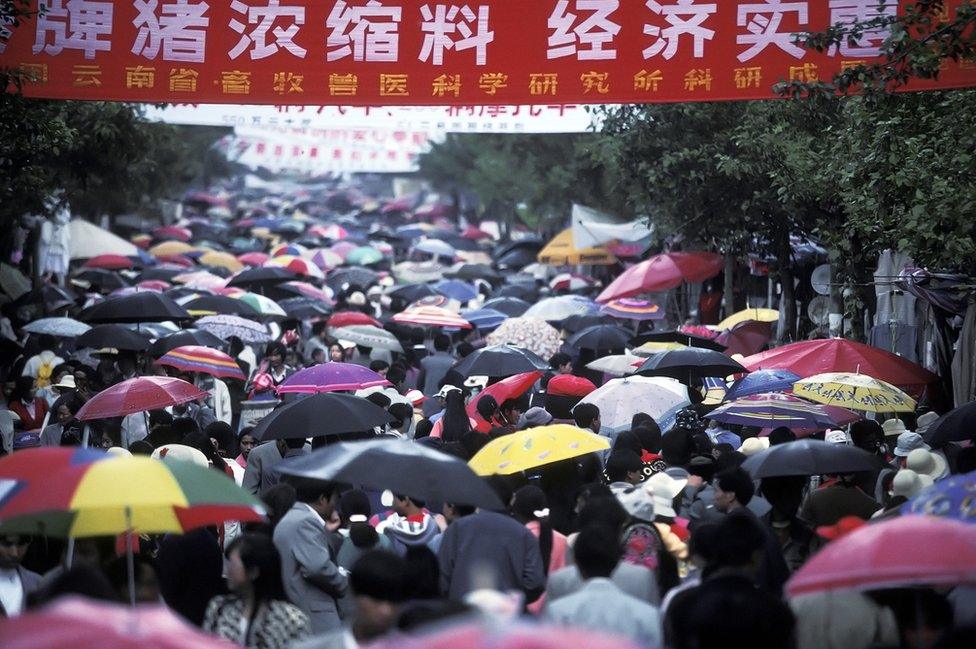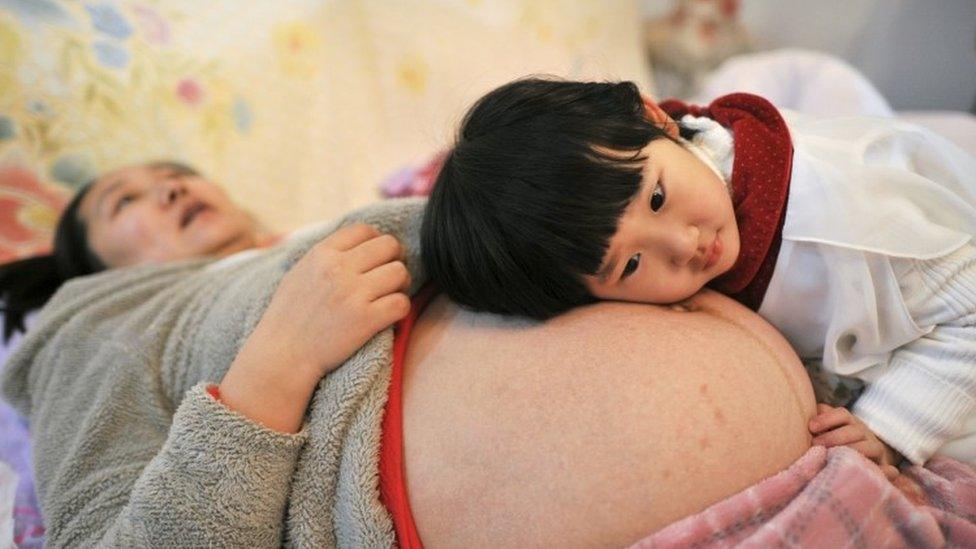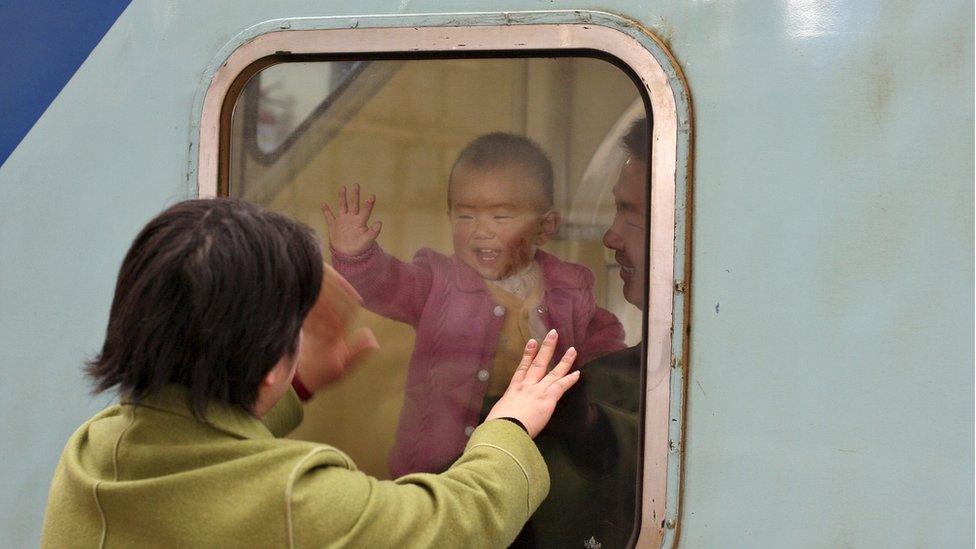Why millions of Chinese are becoming official
- Published

China will give status to an estimated 13 million Chinese who are "unregistered"
China will give official status to all of its "unregistered" citizens, many of them children born illegally under the one-child system, in plans announced this week.
If implemented at local level, this could change the lives of 13 million Chinese, who will now be allowed access to crucial services like education and health that they were previously excluded from.
What does 'unregistered' mean?
Being "unregistered" in China means not having a household registration document, known locally as a hukou. In more than 60% of cases, those without a hukou were victims of the one-child policy (others are those born out of wedlock or who are homeless). China has announced it will soon move from a one- to a two-child policy. But for the last 37 years, parents in many areas who gave birth to more than one child were required to pay local family planning officials a hefty fine (called a "social maintenance fee"). Most would pay because if they did not, their child would not get a hukou.
What is the hukou system?
The hukou system is a controversial system of household registration required by law in China. It was set up in the late 1950s to control the movement of people between cities and the countryside. It requires all Chinese people to be classed as either urban or rural. Critics have compared it to a caste system, intended to control internal movement and aimed initially at stopping farmers moving to cities.
What will registration bring?
Gaining a hukou brings with it not only access to schooling and medical treatment but other social benefits too. Anyone wanting to open a bank account, take out medical insurance or get married needs one. You also need a hukou to buy train and plane tickets.

In more than 60% of cases, the "unregistered" were second siblings in a nation that enforced a one-child policy
Is this a policy change?
In some ways it's not. According to the Chinese constitution and other laws, all citizens, regardless of family planning policies, have a right to a hukou. But in practice things have worked very differently. The plan announced envisages big change in real terms. This is more of a central government initiative, or directive, to get local governments and especially local family planning units to take note.
Why is this change being introduced now?
There are many theories.
The Ministry of Security says that they are concerned about the effect on social stability. The idea being that millions of undocumented people, often forced into using unofficial or illegal means to get by, is not something any police chief wants to see.
Amnesty International's China expert William Nee says the Chinese government "always uses social stability as a reason for change".
"It could also be down to the amount of criticism the government has been getting - both domestically and abroad - for a situation which has been a blot on China's record for years."
Unicef China has been campaigning for change in this area for years, particularly as children are amongst those most affected and so "most vulnerable" if they are not registered.
Their chief of communications, Shantha Bloemen, thinks the announcement's timing might also "be linked to this year's five-year plan, to eradicate poverty completely by 2020".
Will the plan be implemented?
The central government has made previous announcements about hukou reform which have not always been put into place.
But Unicef's Shantha Bloemen said this announcement seemed particularly "significant."
Professor Duan Chengrong of Renmin University, one of the country's leading demographers and advocates of hukou reform, also believes that in this instance the local officials will listen to their superiors.
So, good news then?
Well, yes. It is for these 13 million people, many of whom are now middle aged and have lived most of their lives as "unofficial" people. However, there is the additional question of which hukou will they be given. They will want a hukou corresponding to the area where they are living - eg Beijing. But if they are not and are instead given a remote, rural hukou, they will join hundreds of millions of migrant workers and migrant children who have full access to services, but only in their home towns and not in the cities where they reside and earn their living.
Interviews and research by Martin Pollard
- Published29 October 2015

- Published29 October 2015
